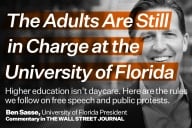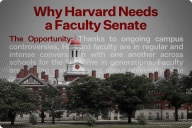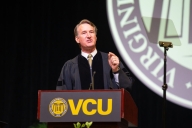You have /5 articles left.
Sign up for a free account or log in.

Twitter/Dan Ravicher
A politically conservative lecturer of law at the University of Miami says he’s being pushed out over his views, as expressed on Twitter -- including the disproved claim that President Donald Trump was the victim of widespread election fraud.
Dan Ravicher has also tweeted about buying guns to protect his family from postelection protesters, compared some Democrats to Nazis and warned students that professors who don’t share their political views will give them lower grades.
Perhaps most controversially, Ravicher tweeted on election night, “Latinos are now clearly the most politically important minority group in America. Blacks allow themselves to be taken for granted and treated horribly by Democrats. Latinos don’t. Also, population difference will grow bc blacks have 50% more abortions than Latinos per cap.”
Fellow Miami law faculty members have spoken out against what they call Ravicher’s “egregious lack of professional judgment," but the university says it has not taken disciplinary action against Ravicher.
Anthony E. Varona, dean and M. Minnette Massey Professor of Law at Miami, said through a spokesperson that Ravicher “has not been terminated, nor has he been removed from his course. We are not sure why he is saying or suggesting otherwise.”
The university did, however, offer Ravicher’s current students a pass/fail option to “clarify administrative solutions for any students that feel uncomfortable about impartial grading” due to his tweets, according to an administrative email Ravicher shared with Inside Higher Ed.
Ravicher maintains he’s been also been “fired for speech,” per his Twitter bio, even though he’s still contracted to teach and direct a start-up practicum through 2022. Via email, Ravicher said that the bottom line of a recent phone conversation with Varona is that he will be terminated or nonrenewed in 2022 or sooner -- unless he walks back some of his comments.
As evidence of the alleged ultimatum, Ravicher shared a partially redacted follow-up email from Varona, in which Varona says “Neither [redacted] nor I would want to hurt or harm you or silence you from expressing conservative views. We are trying to get through to you, heart to heart, to say that you made a serious mistake and that you can, and should, correct it.”
Varona continued, “Your reply to me on Saturday during our call was that you (respectfully) declined my advice and request and would keep doing what you are doing -- despite the fact that what you have been doing is causing so much divisiveness, and is offending and insulting and hurting even those who support you.” He added, “If I were you, I would put out a tweet expressing acknowledgement and remorse, and I would commit to a more measured and professional approach to tweeting.”
The email doesn’t threaten termination or contract nonrenewal. But Ravicher said via email, “I’m not sure how else to interpret, ‘you made a serious mistake and that you can, and should, correct it,’ ‘you do have some serious repair work to do,’ and ‘it's not too late.’ Seems pretty clear to me.”
Varona also wrote a memo to the law school, saying he’d “received many complaints and concerns about [Ravicher’s] tweets from many of you,” as well as “messages in support of Professor Ravicher in the classroom, and about how many of our students and alumni value him as an educator and mentor.”
Speaking personally, Varona said, “I disagree -- viscerally -- with many of Professor Ravicher’s public statements. I disagree with them both in content and approach. What also is true is that the University of Miami, Miami Law, and I as dean respect and defend academic freedom and the freedom of expression of all of our community members -- including those of Professor Ravicher.”
Which tweets got him into the most trouble? Ravicher said that Varona told him his comments about race and #StandYourGround would have been acceptable if he were Black.
Miami did not respond to follow-up questions about Varona's comments to Ravicher.
Varona’s email to Ravicher discusses race, saying, “The fact that [redacted] was offended by what seemed to him (and to me) to be racist or racially insensitive language in your tweets should tell you something. Something serious. He’s one of your champions.”
Earlier this year, Ravicher offered to go on furlough to protect more vulnerable colleagues. When the university enrolled more first-year law students than expected, he agreed to teach his spring 2021 class load at 50 percent pay, according to additional emails he shared.
Presumably referring to these agreements, Varona wrote to Ravicher, “I have been one of your champions. I have been touting how much of a magnanimous and community-minded of a colleague you are for months, in light of your self-furlough to protect coworkers who are vulnerable.”
Making a Martyr?
Magnanimity aside, many of Ravicher’s colleagues find his tweets unacceptable. In an open letter in Miami’s school newspaper, 20 Miami professors of law criticized Ravicher, saying, “Lawyers are called to bear witness to, and provide guidance on, some of the darkest days in the lives of individuals and communities. The professional obligation of lawyers in those moments, regardless of their personal feelings, is to uphold the rule of law, to reject unethical behavior and to model the values of respect, empathy and critical thinking.”
Citing the ongoing pandemic and protests for racial justice, and attempts to undermine the legitimacy of the presidential election, the letter says that “our commitment to our students during this time, as faculty, as officers of the court and as professionals, is to exercise judgment and leadership in our public engagement -- not to attack or appropriate vulnerable communities or promote unfounded claims that further destabilize this moment in American democracy.” More professors have signed the document since it was first published.
Individual professors have called out Ravicher, as well. In response to Ravicher’s tweet warning students not express their political views in class for fear of seeing their grades suffer, Alberto Cairo, Knight Chair in Visual Journalism at Miami, responded, “No professor you['ve] worked with lowers a students' grades because of political disagreements. Extraordinary claims require extraordinary evidence; show it.”
Cairo said Friday that he has “very thin skin when it comes to falsehoods, and what [Ravicher] wrote about professors lowering grades because of political opinions is 100 percent false -- unless he can provide empirical evidence. That's why I called him out publicly.”
Even so, Cairo said Ravicher shouldn’t face disciplinary action for the comments he’d seen. For reference, Cairo said his red lines were harassing people or using slurs.
Michael Olivas, William B. Bates Distinguished Chair in Law Emeritus at the University of Houston, said that Ravicher appeared to be more of a provocateur seeking “martyr” status than anything else, and that Miami should be cautious about granting him that status. Olivas said he didn’t see anything terminable in Ravicher’s tweets, even the controversial one involving race and voting patterns -- though he did say it was “uninformed.”
Regarding Ravicher's comments about election fraud, which some have argued are troubling for a legal scholar, Olivas pointed out that Ravicher -- a corporate and intellectual property law scholar -- doesn't teach or appear to study election law. And so his comments about the election don't necessarily relate to his area of scholarship.
“This guy’s crazy,” Olivas said, “taunting authorities so that he becomes a victim of ‘free speech for thee, not me.’” But “the real question is whether or not he brings this stuff into class.”
If not, Olivas said, Miami should probably lay off the issue.
The American Association of University Professors, for which Olivas has worked, promotes the idea that professors’ classroom speech, even controversial speech, is protected under academic freedom when it’s “germane to the subject matter.” The AAUP says that classroom speech is also protected under these circumstances at public institutions under the First Amendment, but Miami is private.
The AAUP’s bar for extramural speech -- think social media -- is lower, though, in that it rarely has any bearing on a professor’s professional capacity. Association policy “asserts the right of faculty members to speak or write as citizens, free from institutional censorship or discipline.”
At the same time, it “calls attention to the special obligations of faculty members arising from their position in the community: to be accurate, to exercise appropriate restraint, to show respect for the opinions of others, and to make every effort to indicate that they are not speaking for the institution.”
Even so, some professors have been fired for their social media posts. Most recently, Mike Adams, an associate professor of criminology at the University of North Carolina at Wilmington, settled and agreed to retire following a long-standing dispute with his administration about his tweets, including those about race. Adams died by suicide over the summer. While Adams was politically conservative, like Ravicher, politically liberal professors including Steven Salaita have lost jobs over their tweets, too.
Miami’s Faculty Manual draws from AAUP policy, saying, ”When speaking or writing as members of society, faculty members retain all the rights shared with other members of society and shall be free from university censorship or discipline.” It also notes that the “public may judge a profession and the university by public utterances by faculty members,” and that professors should make “every effort to indicate whether they are acting as spokespersons for the university or are speaking in a private capacity.”
Ravicher said his outstanding concern is that his university has a policy on faculty speech that it’s not following. Moreover, he said, Miami’s de facto allegation that he’s incapable of grading students impartially has no basis in reality.
“Analyzing the grades I've given over the years, student evals, graduating student surveys and alumni responses all show absolutely no basis to allege I lack impartiality at all,” he said. “I’ve asked how this determination was made and received no response.”
What's next for Ravicher? "I am not revealing what I may be considering," he said. "I have hope we can get this fixed and improve the culture at the school."








